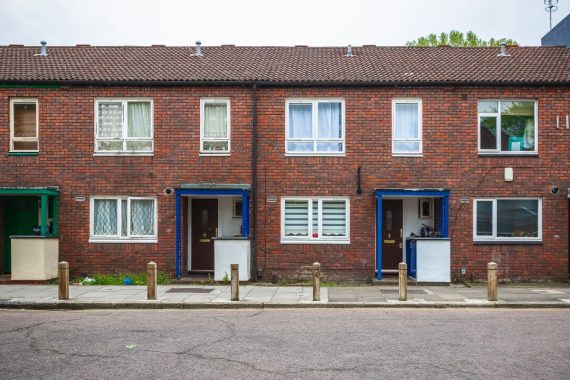42 deprived areas to be prioritised for ‘neighbourhood health’ from September

The Government has announced the first phase of the rollout of ‘neighbourhood health programmes’, with 42 areas to be chosen to pioneer the new model from September.
The Government said these will be prioritised in the most deprived areas with the lowest healthy life expectancy, such as ‘working-class’ and coastal towns.
ICBs and local authority chief executives have been asked to submit applications to take part, by outlining examples of ‘joined-up working and innovation’ in their areas, including working with GPs, other local health and care providers and voluntary groups.
The Government will then choose 42 areas to join ‘an intensive national coaching programme’ over the summer, including ‘workshop days’ with experts, GPs and their teams, patients, the voluntary sector and local authorities.
A taskforce has been set up between the Department of Health and Social Care and NHS England to oversee this, chaired by Sir John Oldham, a GP, and made up of NHS leaders, local authority bosses and other key figures from the voluntary sector and health and care organisations.
From September, the first 42 sites will then start rolling out their neighbourhood health programmes, with ‘clear guidance, support and metrics to report on regularly’, the Government added.
It pointed to the initiative Team Up Derbyshire, which links GPs, social workers, home carers and nurses to support people who need care in their own homes as one successful example of neighbourhood programme.
Last week’s 10-year plan revealed that the Government will introduce two new contracts aimed at enabling the new new neighbourhood services – which can be held by GPs, but also by hospital trusts – but it is still unclear when these will be put in place.
Health secretary Wes Streeting said: ‘Our 10-year health plan committed to building a neighbourhood health service, and we’re hitting the ground running on delivering it.
‘If we are to get patients cared for faster, on their doorstep and even in their own home, then we need to shift the focus of the NHS from hospitals to the community.
‘Today, we are issuing an open invitation to local authorities and health services to become pioneer neighbourhood health services and lead the charge of healthcare reform.
‘As part of our Plan for Change, we’re beginning the neighbourhood health service in areas of greatest need first, to tackle the unfair health inequalities that blight our country.’
Under the plan, ‘the majority of outpatient care’ would happen outside of hospitals by 2035, including diagnostics, post-operative care and rehab.
Neighbourhood health centres will also offer services like debt advice, employment support and stop smoking or weight management, the plan said.
‘Neighbourhood teams’ based within these centres will include nurses, doctors, social care workers, pharmacists, health visitors, palliative care staff and paramedics. Eventually the centres will be open 12 hours a day, six days a week, the Government has pledged.
Read all of Pulse’s coverage of the 10-year plan here.
Related Articles
READERS' COMMENTS [1]
Please note, only GPs are permitted to add comments to articles












I don’t understand why this is needed.
Is it just a duplication of the GP surgery and District Nurses system?
I really do not care if I will be able to have an MRI in my own house by 2035 – I just want to be able to access a reasonably competent GP within my own town, and be able to attend an A&E within 15 miles if I have an urgent problem or accident out of hours! (or even in hours!! – ours is closed, and GPs will not cover it)